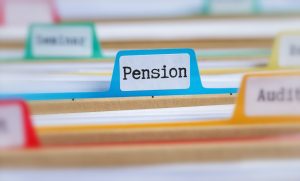 Which? surveyed 948 members earlier in the year. Of these 71% said that they had not included pensions in their financial settlement and one in five of these 71% said they had not even considered pensions. This could mean that many couples are splitting without full consideration of their financial worth and without a fair split of assets.
Which? surveyed 948 members earlier in the year. Of these 71% said that they had not included pensions in their financial settlement and one in five of these 71% said they had not even considered pensions. This could mean that many couples are splitting without full consideration of their financial worth and without a fair split of assets.
Pension sharing has been allowed by law since 2000. Some pensions can be worth hundreds of thousands of pounds and leaving them out of any financial settlement can lead to a very unfair situation. This often adversely affects women, as married women regularly have smaller pension pots than men.
However, 22% of the people in the Which? survey who didn’t share pensions didn’t want to, and this is quite common. It has been found that pension sharing orders are decreasing, down 35% since 2017, from 36,202 in 2017 to 23,622 in 2021.
Bradie Pell, partner and head of Graysons’ family team says:
“When agreeing a financial settlement on divorce, all assets should be included, not just the things you might expect, such as savings, the house, cars and other valuables. These may be relatively simple to split, but pensions can be complex and considered in several ways. Many couples choose to offset their pensions against another asset, such as the house, so they keep their pension, and their ex gets the house.”
Ignoring a pension altogether is a mistake and can be very costly to either partner, but so can offsetting, particularly if agreed out of court and without proper advice. Some pensions can be extremely valuable and if the couple hasn’t taken advice and had the pension properly valued, the offsetting may end up being unfair. When a pension is to be shared using a court order as part of a divorce, a specialist valuation is obtained first (usually referred to as a CETV or CEV) which confirms the value of the whole pension. Expert advice can then be sought as to the percentage needed for sharing based upon individual circumstances or, the correct amount for an offset if appropriate or desired.
Why are women adversely affected when pensions are not shared?
The gender pension gap is generally understood to refer to the differences in retirement outcomes for men and women. Although there is no official measure of it, according to a parliamentary document, the gender pension gap is ‘significantly larger than the gender pay gap and applies to a large (and growing) proportion of the female population’.
There are several reasons why women have smaller pension pots than men. Often it is because they have taken time out of work to look after children or have part-time jobs in order to provide childcare, so they haven’t paid as much into a pension. Indeed, a recent report by Now Pensions shows that around three million women do not have a workplace pension as they don’t meet the minimum earnings requirement of more than £10,000 for auto-enrolment.
Recent research by the University of Manchester and the Pensions Policy Institute shows that the gender pension gap starts as early as age 30 and that by the age of 45-54, married men’s median private pension wealth is about £86,000 compared with £40,000 for married women. This gap continues to grow and at the age of 64 to 69, a married man’s median private pension is worth £260,000, whilst a woman of the same age has a pension worth only £28,000.
Bradie says:
“These statistics are quite eye-opening and are reason enough to show how important it is for pensions to be considered upon divorce as part of the financial settlement – especially for women – older women in particular. Pensions are complex and need very careful consideration. Some people seem to worry about pension sharing orders as they think that it will lead to them remaining financially tied to their ex after the divorce. This isn’t the case. When the pension is shared at divorce by a pension sharing order (different to a pension attachment order which is now very rare), a percentage of it is put into a different pot for the person who is getting the share, so they get their own pension.”
If you are getting a divorce and want to know whether you should consider pension sharing, we can help. You can take advantage of our one-hour fixed-fee initial appointment, in which we can discuss your case and the law relating to pensions. Contact our family law team to make an appointment. You can also find out more about divorce and finances on our web pages.

